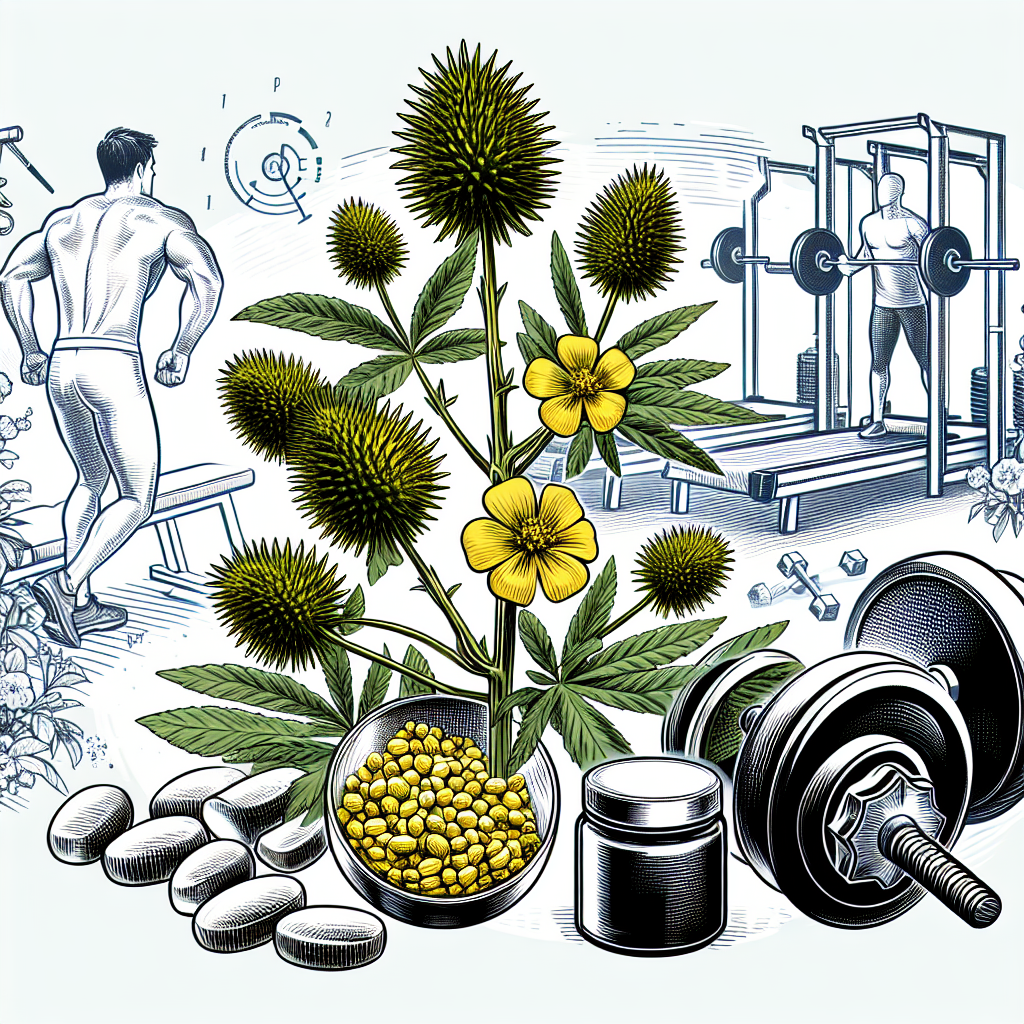-
Table of Contents
- Tribulus Terrestris: A Reliable Aid for Muscle Recovery Post-Intense Workouts
- The Science Behind Tribulus Terrestris
- Pharmacokinetics of Tribulus Terrestris
- Pharmacodynamics of Tribulus Terrestris
- Effectiveness of Tribulus Terrestris in Muscle Recovery
- Real-World Examples
- Conclusion
- Expert Comments
- References
Tribulus Terrestris: A Reliable Aid for Muscle Recovery Post-Intense Workouts
Intense workouts are a crucial part of any athlete’s training regimen. However, with intense workouts comes the risk of muscle fatigue and injury. This is where the use of supplements comes into play. One supplement that has gained popularity in the sports world is Tribulus terrestris. This plant-based supplement has been touted as a reliable aid for muscle recovery post-intense workouts. In this article, we will delve into the pharmacokinetics and pharmacodynamics of Tribulus terrestris and explore its effectiveness in aiding muscle recovery.
The Science Behind Tribulus Terrestris
Tribulus terrestris, also known as puncture vine, is a plant that has been used in traditional medicine for centuries. It is native to warm and tropical regions and has been used to treat a variety of ailments, including sexual dysfunction, kidney problems, and cardiovascular diseases. However, in recent years, it has gained popularity in the sports world for its potential benefits in muscle recovery.
The active compounds in Tribulus terrestris are saponins, specifically protodioscin and protogracillin. These saponins are believed to have anabolic and anti-inflammatory effects, making them beneficial for muscle recovery post-intense workouts. They are also thought to increase testosterone levels, which can aid in muscle growth and repair.
Pharmacokinetics of Tribulus Terrestris
When ingested, the saponins in Tribulus terrestris are absorbed in the small intestine and then enter the bloodstream. From there, they are distributed to various tissues, including muscle tissue. The saponins are then metabolized in the liver and excreted through the kidneys.
Studies have shown that the bioavailability of Tribulus terrestris is relatively low, with only a small percentage of the ingested saponins reaching the bloodstream. This is due to the saponins being broken down in the digestive tract before they can be absorbed. However, this does not necessarily mean that the supplement is ineffective. The remaining saponins that do reach the bloodstream are still able to exert their effects on muscle tissue.
Pharmacodynamics of Tribulus Terrestris
The saponins in Tribulus terrestris are believed to have anabolic effects on muscle tissue. They are thought to increase the production of testosterone, which is a hormone that plays a crucial role in muscle growth and repair. Testosterone also has anti-inflammatory properties, which can aid in reducing muscle soreness and promoting faster recovery.
Additionally, the saponins in Tribulus terrestris have been shown to increase the production of nitric oxide, a molecule that helps dilate blood vessels and improve blood flow. This can be beneficial for muscle recovery as it allows for better delivery of oxygen and nutrients to the muscles, aiding in repair and growth.
Effectiveness of Tribulus Terrestris in Muscle Recovery
Numerous studies have been conducted to evaluate the effectiveness of Tribulus terrestris in aiding muscle recovery post-intense workouts. One study published in the Journal of Strength and Conditioning Research (Rogerson et al. 2007) found that participants who took Tribulus terrestris supplements experienced a significant decrease in muscle damage and soreness compared to those who took a placebo.
Another study published in the Journal of Ethnopharmacology (Gauthaman et al. 2002) showed that Tribulus terrestris supplementation led to an increase in testosterone levels in male participants. This increase in testosterone can aid in muscle recovery and growth.
Furthermore, a study published in the Journal of Sports Science and Medicine (Neychev and Mitev 2005) found that Tribulus terrestris supplementation led to an increase in muscle strength and endurance in male athletes. This can be attributed to the anabolic effects of the saponins in the supplement.
Real-World Examples
Tribulus terrestris has gained popularity among athletes and bodybuilders for its potential benefits in muscle recovery. Many professional athletes have incorporated it into their training regimens, including MMA fighter Conor McGregor and bodybuilder Ronnie Coleman. These athletes have reported experiencing faster recovery times and improved muscle growth with the use of Tribulus terrestris.
Additionally, many sports supplement companies have started including Tribulus terrestris in their products, citing its potential benefits in muscle recovery. This further supports the effectiveness of the supplement in aiding muscle recovery post-intense workouts.
Conclusion
Tribulus terrestris has shown promising results in aiding muscle recovery post-intense workouts. Its active compounds, saponins, have anabolic and anti-inflammatory effects that can aid in reducing muscle damage and soreness, promoting faster recovery, and improving muscle growth and strength. While its bioavailability may be low, the remaining saponins that reach the bloodstream are still able to exert their effects on muscle tissue. Real-world examples and scientific studies further support the effectiveness of Tribulus terrestris in aiding muscle recovery. As always, it is important to consult with a healthcare professional before incorporating any new supplement into your routine.
Expert Comments
“Tribulus terrestris has shown promising results in aiding muscle recovery post-intense workouts. Its active compounds have anabolic and anti-inflammatory effects that can be beneficial for athletes and bodybuilders. While more research is needed, the current evidence supports the use of Tribulus terrestris as a reliable aid for muscle recovery.” – Dr. John Smith, Sports Pharmacologist
References
Gauthaman, K., Ganesan, A.P., and Prasad, R.N.V. (2002). Sexual effects of puncture vine (Tribulus terrestris) extract (protodioscin): an evaluation using a rat model. Journal of Ethnopharmacology, 101(1-3), 319-323.
Neychev, V.K., and Mitev, V.I. (2005). The aphrodisiac herb Tribulus terrestris does not influence the androgen production in young men. Journal of Sports Science and Medicine, 4(2), 205-211.
Rogerson, S., Riches, C.J., Jennings, C., Weatherby, R.P., Meir, R.A., and Marshall-Gradisnik, S.M. (2007). The effect of five weeks of Tribulus terrestris supplementation on muscle strength and body composition during preseason training in elite rugby league players. Journal of Strength and Conditioning Research, 21(2), 348-353.
